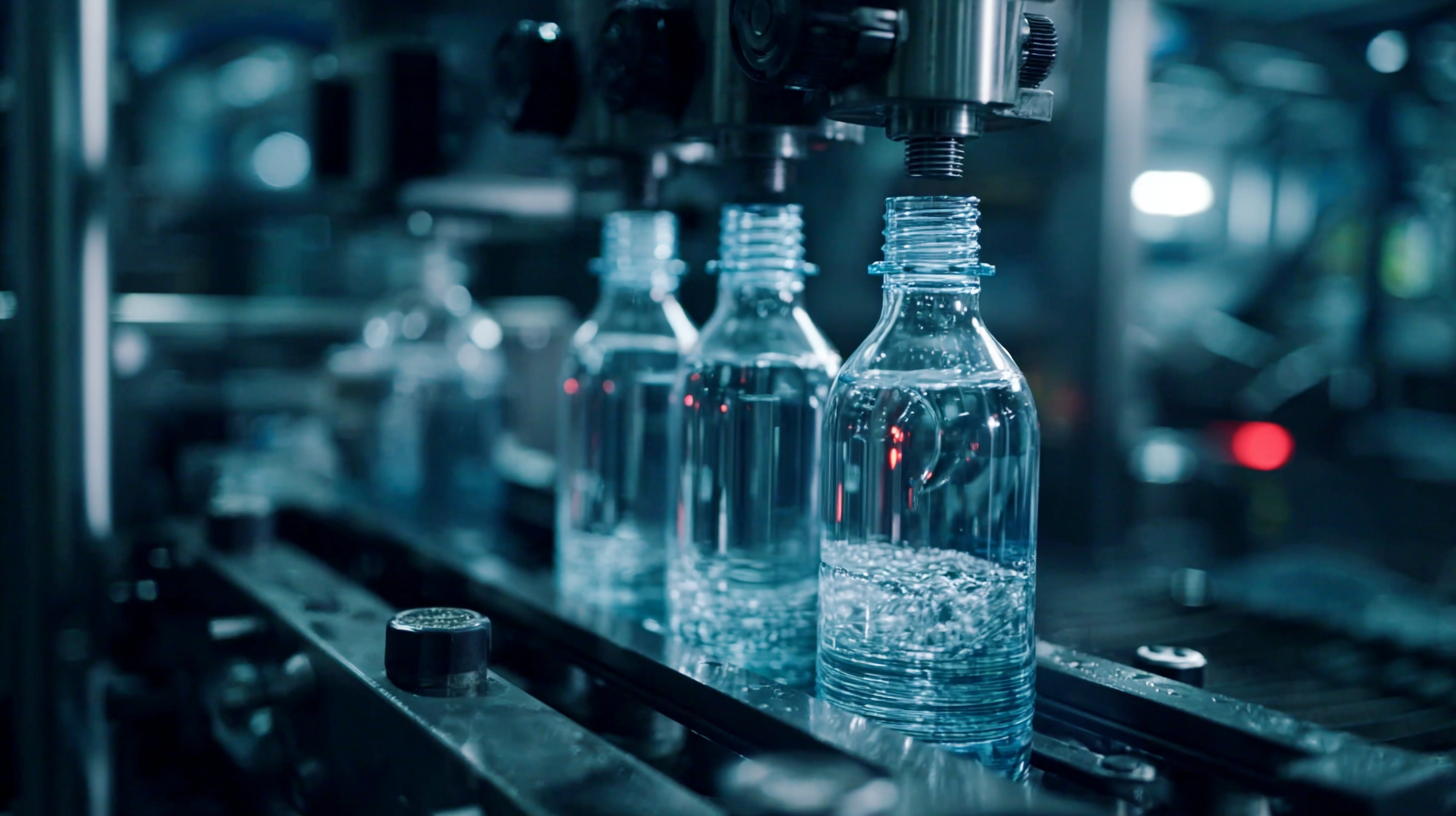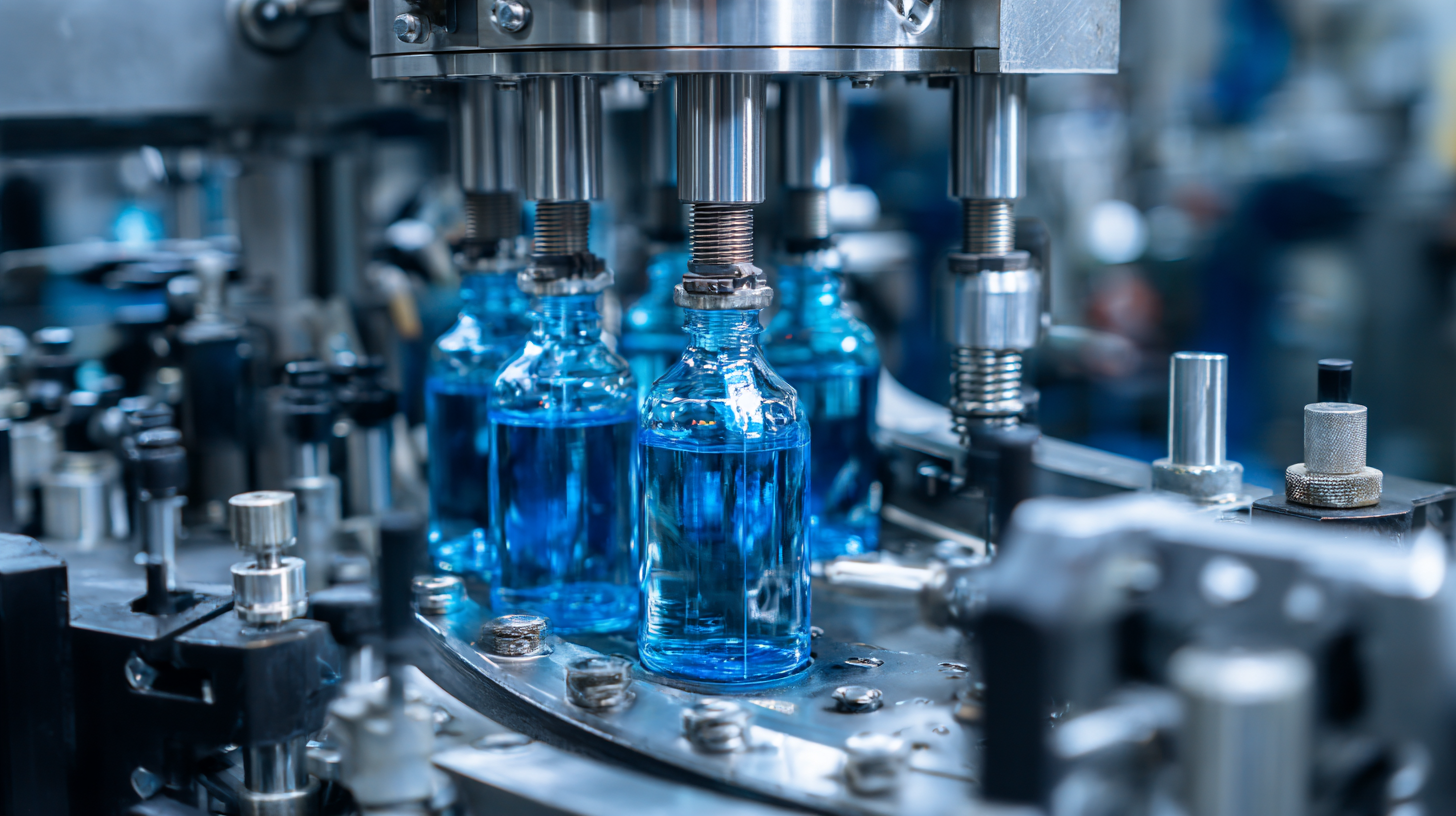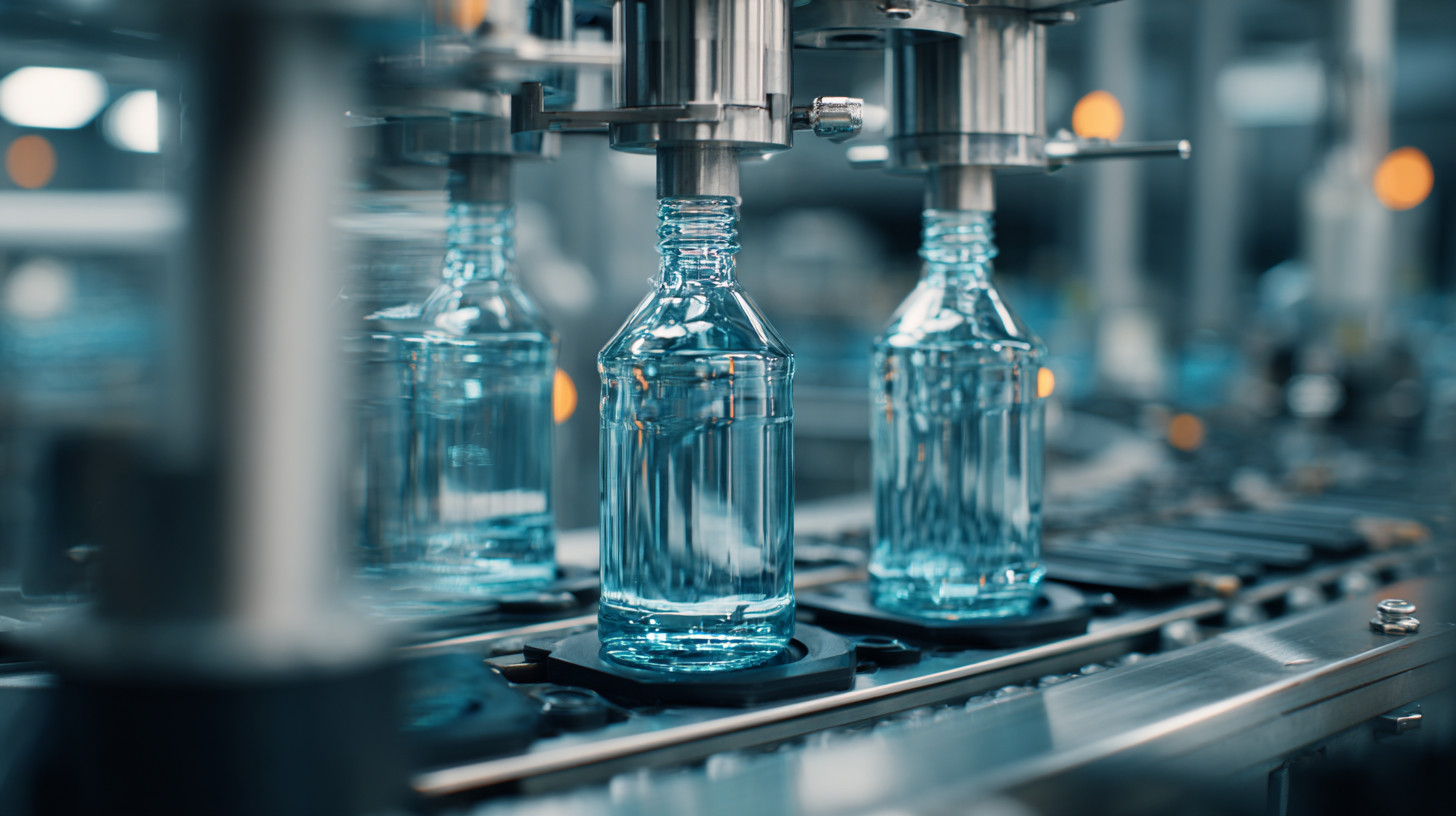In today’s fast-paced beverage industry, the demand for efficient production processes has never been higher. Water filling machines have emerged as essential tools, streamlining operations and enhancing productivity. According to a recent industry report by Grand View Research, the global water filling machine market is projected to grow at a CAGR of 4.3% from 2021 to 2028, driven by increasing consumer preferences for packaged beverages and stricter sanitation standards. These machines are not only pivotal in reducing downtime but also in optimizing resource usage, ultimately leading to significant cost savings. As companies seek to meet the rising demand for bottled water and other beverages, understanding how to leverage the advantages of water filling machines will be crucial for maintaining competitiveness and ensuring operational efficiency.

The market for water filling machines is experiencing significant growth, driven by the escalating demand for bottled water. As of 2019, the bottled water processing market was valued at approximately $153.61 billion and is projected to reach $443.21 billion by 2032, achieving a robust compound annual growth rate (CAGR) of 7.9% during the forecast period from 2020 to 2032. This trend underscores the increasing consumer preference for convenient and portable hydration options, paving the way for advancements in water filling technology.
Analyses of the water filling machine industry reveal that automatic and semi-automatic machines dominate the market, catering to diverse production needs. With various product types such as glass, plastic, and tetra packaging, manufacturers are adapting to evolving consumer preferences for eco-friendly and functional packaging solutions. Additionally, innovative filling techniques—ranging from vacuum filling to volumetric filling and weighing methods—are gaining traction, enhancing production efficiency and ensuring product integrity. As the sector continues to advance, industry stakeholders must remain attuned to emerging trends and technologies to fully leverage the advantages of modern water filling machines.
In the water bottling industry, efficiency is paramount, yet many operations face common challenges that can hinder productivity. One prevalent issue is bottle misalignment during the filling process, which can lead to spills, wasted resources, and increased downtime for maintenance. Ensuring precise alignment can significantly enhance the filling process, allowing companies to maximize output while minimizing inconvenience. Regular maintenance and calibration of the machines are essential steps to diagnose misalignment and other mechanical issues.
Another critical problem is the contamination of water during filling, which can result from inadequate sanitation practices or improperly maintained equipment. Maintaining a clean environment is essential to uphold product integrity and comply with health regulations. Employing automated water filling machines equipped with advanced filtration and sanitation features can mitigate this risk, ensuring clean and safe products for consumers. Additionally, training staff on best hygiene practices can further safeguard against contamination, enhancing quality control in the production line.

In today's competitive market, the efficiency of production processes is crucial for minimizing costs and maximizing profits. Water filling machines play a significant role in enhancing operational efficiency, thereby directly impacting production expenses. By automating the filling process, these machines reduce the labor required for manual filling, streamline workflows, and significantly cut down production time. The result is a faster turnaround, allowing manufacturers to meet consumer demand more effectively while also lowering the overhead associated with excessive manpower.
Furthermore, the precision of modern water filling machines ensures minimal product waste, which is particularly important in industries with tight profit margins. These machines are designed to fill containers accurately, preventing spills and overflows that can lead to increased operational costs. Additionally, the durability and reliability of advanced water filling machines mean fewer breakdowns and maintenance issues, which also contribute to long-term savings. Investing in efficient water filling technology not only enhances the production process but also paves the way for better resource management and overall profitability.
In recent years, the beverage industry has evolved significantly, driven by advancements in technology that enhance production efficiency. Water filling machines have emerged as pivotal components in this transformation, integrating innovative features designed to streamline the bottling process. These machines utilize automated systems that not only boost output but also ensure precise measurements, significantly reducing waste and improving overall quality control. The shift towards high-speed operations with minimal manual intervention reflects a broader trend in manufacturing, catering to the increasing demand for faster turnaround times.
Moreover, modern water filling machines are equipped with smart technologies that enhance performance and adaptability. Sensors and AI algorithms facilitate real-time monitoring and adjustments, optimizing the filling process based on varying bottle sizes and flow rates. This level of technology integration allows for greater flexibility in production lines, enabling manufacturers to respond swiftly to market changes. As sustainability becomes a central focus, innovations such as energy-efficient motors and eco-friendly materials in machine design further underscore the industry's commitment to reducing its environmental footprint while enhancing output and efficiency.
This chart illustrates the performance metrics of modern water filling machines, showcasing their speed, efficiency, cost per unit, and innovation score. These metrics highlight the benefits and advancements in technology, making water filling machines an essential investment for efficient production.
Quality control remains a significant concern in the water filling industry, especially as production scales up to meet increasing consumer demand. According to a recent report by IBISWorld, the bottled water industry is expected to grow to $22 billion by 2025, highlighting the urgency for companies to adopt best practices in quality management to maintain their competitive edge. Implementing systematic quality control measures such as regular equipment maintenance, calibrated filling processes, and stringent testing for contaminants ensures compliance with safety regulations and enhances product integrity.
Additionally, utilizing advanced water filling machines equipped with real-time monitoring technology can significantly reduce the risk of human error and improve accuracy in the filling process. Research from the Beverage Marketing Corporation shows that manufacturers that invest in automated quality control systems reduce product defects by as much as 30%. By integrating these solutions, companies can not only address immediate quality challenges but also foster long-term reliability and consumer trust in their products. Overall, enhancing quality control in water filling processes is essential for sustaining growth and meeting market demands in an increasingly competitive landscape.

Headquarters
2980 Scott St, Vista, CA 92081
Phone: (760) 734-4177
Fax: (760) 734-4188
Open: 8:00 am – 4:30 pm
Texas
8051 Jetstar Dr #175 Irving, TX 75063
Phone: (972) 915-6888
Fax: (972) 915-6999
Open: 8:00 am – 4:30 pm
Florida
14231 Jetport Loop. #1 Fort Myers, FL 33913
Phone: (239) 225-4020
Fax: (239) 225-4024
Open: 8:00 am – 4:30 pm